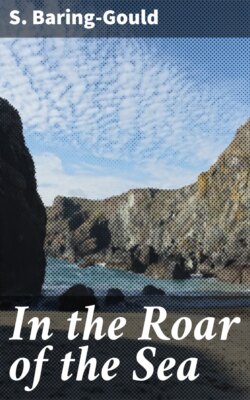Читать книгу In the Roar of the Sea - S. (Sabine) Baring-Gould - Страница 6
На сайте Литреса книга снята с продажи.
Оглавление[A] Many stories of Cruel Coppinger may be found in Hawker’s Footprints of Former Men in Cornwall. I have also told them in my Vicar of Morwenstow. I have ventured to translate the scene of Coppinger’s activity further west, from Wellcombe to S. Enodoc. But, indeed, he is told of in many places on this coast.
Moreover, if report spoke true—and reports do not arise without cause—Coppinger was not averse from taking advantage, and that unlawful advantage, of a wreck. By “lawful” and “unlawful” two categories of acts are distinguished, not by the laws of the land but by common consent of the Cornish conscience. That same Cornish conscience distinguished wrecking into two classes, as it distinguished then, and distinguishes still, witchcraft into two classes. The one, white witchcraft, is legitimate and profitable, and to be upheld; the other, black witchcraft, is reprehensible, unlawful, and to be put down. So with wrecking. The Bristol Channel teemed with shipping, flights of white sails passed in the offing, and these vessels were, when inward bound, laden with sugars and spices from the Indies, or with spirits and wines from France. If outward bound they were deep in the water with a cargo of the riches of England.
Now, should a gale spring up suddenly and catch any of these vessels, and should the gale be—as it usually is, and to the Cornish folk, favorably is—from the northwest, then there was no harbor of refuge along that rock-bound coast, and a ship that could not make for the open was bound inevitably to be pounded to pieces against the precipitous walls of the peninsula. If such were the case, it was perfectly legitimate for every householder in the district to come down on the wreck and strip it of everything it contained.
But, on the other hand, there was wrecking that was disapproved of, though practised by a few, so rumor said, and that consisted in luring a vessel that was in doubt as to her course, by false signals, upon a reef or bar, and then, having made a wreck of her, to pillage her. When on a morning after a night in which there had been no gale, a ship was found on the rocks, and picked as clean as the carcase of a camel in the desert, it was open to suspicion that this ship had not been driven there by wind or current; and when the survivors, if they reached the shore, told that they had been led to steer in the direction where they had been cast away by certain lights that had wholly deceived them, then it was also open to suspicion that these lights had been purposely exhibited for the sake of bringing that vessel to destruction; and when, further, it was proved that a certain set or gang of men had garnered all the profits, or almost all the profits, that accrued from a wreck, before the countryside was aware that a wreck had occurred, then it was certainly no very random conjecture that the wreck had been contrived in some fashion by those who profited by it. There were atrocious tales of murder of shipwrecked men circulating, but these were probably wholly, or at all events in part, untrue. If when a vessel ran upon the rocks she was deserted by her crew, if they took to the boats and made for shore, then there remained no impediment to the wreckers taking possession; it was only in the event of their finding a skipper on board to maintain right over the grounded vessel, or the mariners still on her engaged in getting her off, that any temptation to violence could arise. But it was improbable that a crew would cling to a ship on such a coast when once she was on the breakers. It was a moral certainty that they would desert her, and leave the wreck to be pillaged by the rats from shore, without offer of resistance. The character of the coast-wreckers was known to seamen, or rather a legend full of horror circulated relative to their remorseless savagery. The fear of wreckers added to the fear of the sea would combine to drive a crew, to the last man, into the boats. Consequently, though it is possible that in some cases murder of castaway men may have occurred, such cases must have been most exceptional. The wreckers were only too glad to build a golden bridge by which the wrecked might escape. Morally, without a question, those who lured a hapless merchantman upon the rocks were guilty of the deaths of those sailors who were upset in their boats in escaping from the vessel, or were dashed against the cliffs in their attempts to land, but there was no direct blood-guiltiness felt in such cases; and those who had reaped a harvest from the sea counted their gains individually, and made no estimate of the misery accruing thereby to others.
